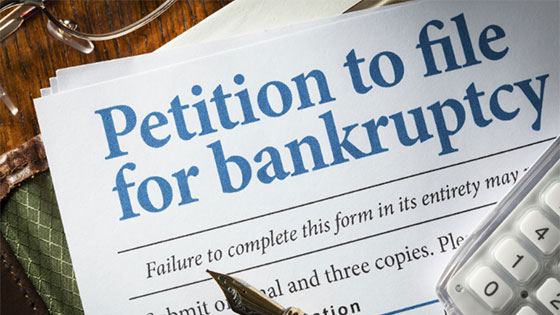When To Consider Filing Bankruptcy
Filing bankruptcy can be a complicated and overwhelming undertaking. Qualified legal representation is recommended to ensure the proper protocols are adhered to and that bankruptcy is filed in the most efficient way possible for the unique individual’s circumstances. There are several different types of bankruptcy, and if you’re a property or business owner, there are even more factors to consider.
According to Google, the technical dictionary definition of bankruptcy includes ‘the inability to pay outstanding debts as declared by law’ and ‘judgement by the courts of a debtor to be insolvent and whose property is taken and disposed of for the benefit of their creditors’. However, actual cases of bankruptcy are rarely, if ever, this cut and dry. In some cases, as with Chapter 7 bankruptcy, the debtor may be entitled to retain their assets.
The question of when to consider filing for bankruptcy is contingent upon one basic concept, which is related to the definition mentioned above – the debtors ability to pay what they owe. Income is factored in, and a person is often expected to earn less than the monthly state median. The standard practice is to add income and assets against bills and credit statements – if the latter is higher than the former, bankruptcy may be a viable options. The debtor would then be obligated to submit what is referred to as a “means test”, which analyzes income, expenses, other financial records, and both secured and unsecured debts.
Secured debts are considered to be items such as mortgages and car loans. Things like personal loans, credit card, and medical bills are classified under unsecured debts. In some cases, the debtor may be required to liquidate assets to satisfy creditors. Chapter 7, 11, and 13 are the three most common types of bankruptcy, the details of which vary according to the situation and assessment of assets.
In the case of Chapter 7, if the debtor is a business owner, they maybe be able to file personal bankruptcy while maintaining possession of the business. Chapter 7 bankruptcy can wipe all debt, while Chapter 13 may require the debtor to sell of property or other assets to fulfill obligations to creditors. If the business finances have fallen into disarray, Chapter 11 may be an option to sustain it.
Property retention will also depend on the calculations mentioned above of assets against bills. If money is owed on the property, this will be factored in to determine if the debtor is able to maintain ownership, rather than if the property is owned outright. Again, this will depend on very specific details and calculations, along with the type or chapter of bankruptcy being filed. For these reason, it is best to consult an experienced professional to help discern the most suitable option.
Every debtors position is highly variant. Some people have had recent bankruptcies or have spouses with bankruptcy on their credit report. Others may have liens or other legal judgements against them. In some cases, a lien can be removed, similarly to that of exemptions. Also, it is important to consider the consequences of filing bankruptcy. Can bankruptcy be like a “reset button” on debt? Possibly. Will the debtor’s credit score take a hit? Almost certainly.
A skilled expert is able to address the confounding questions concerning exemptions and lien removals. They are able to assess the debtors situation and recommend the option that is most likely to benefit the debtors finances. A bankruptcy lawyer is also able to help navigate the rights of the debtor as well as the rights of the creditor to collect the debts.
Call our law offices today at any of our convenient locations and get a free consultation.
Arlington (817) 522-4451
Denton (940) 222-4060
Dallas (972) 362-6848
Fort Worth (817) 764-1375
Cedar Hill (972) 338-9427
McKinney (469) 522-3688
Lewisville (972) 354-4605
Frisco (972) 725-7681
You can also contact us online by using our quick contact form.











